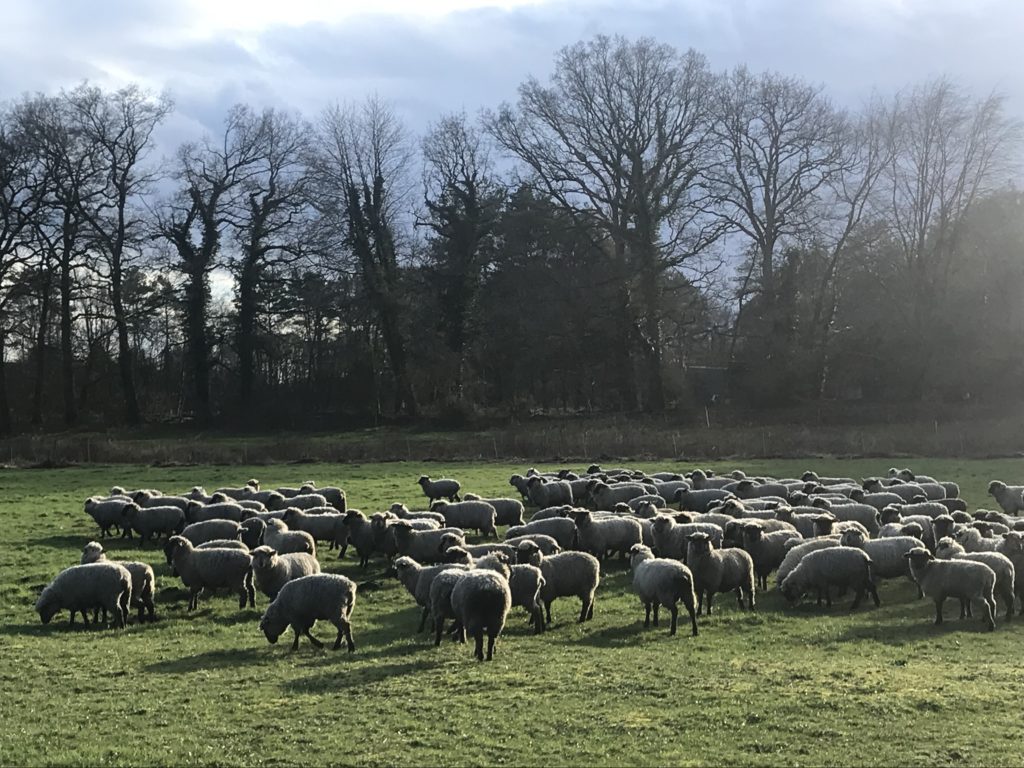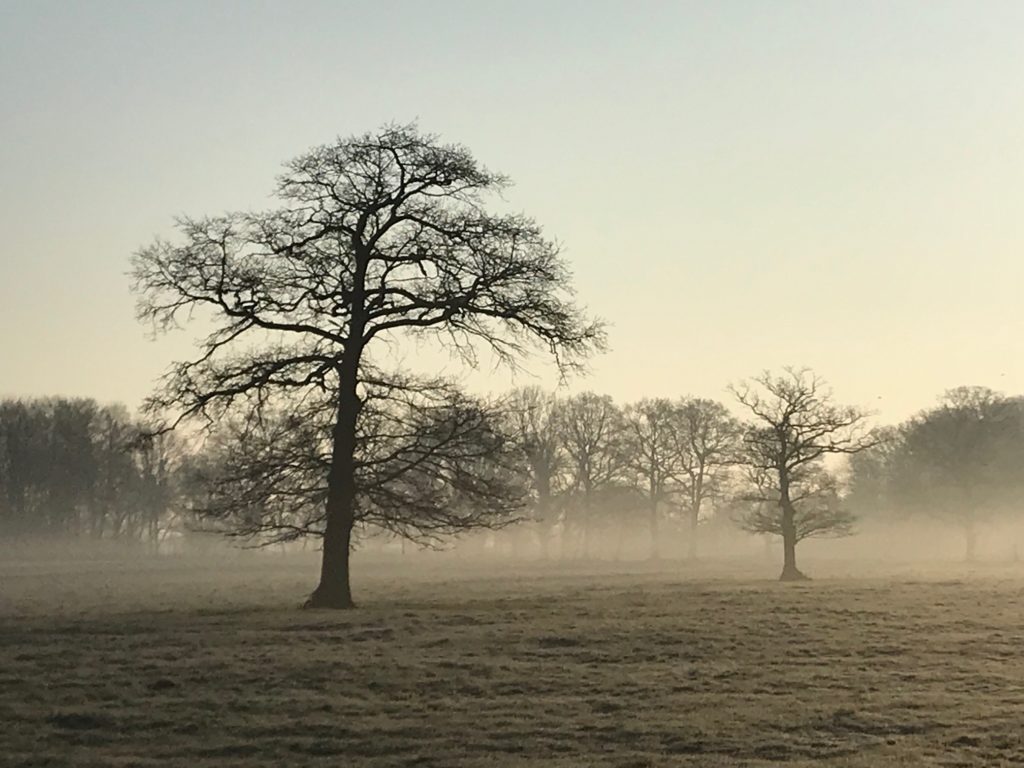I am here now.
At home. Back in that small village in the German countryside where I grew up, miles away from any big city. A world away from Piraeus.
Close to the Atlantic coast, the village is set in flat farming land, interspersed with lakes and forests. The first thing you notice when you get here is the silence. You may have trouble falling asleep, that is how utterly still it is here.
A few tractors, the odd car, otherwise no traffic at all. There are many farm buildings, a large smithy, the economic heart of the village, red-brick houses, and trimmed hedges. About 200 people live in this village, and many more animals, mostly cows and horses.
My mother is happy to have me around again.
At age 90, she has been living alone since my father died. Now we keep each other lockdown company, albeit at a safe distance. Hearing is an issue so we talk much louder than before. Not being able to hug her still feels strange.
Though she is in good shape, I do the grocery shopping now and run errands for her. We go for walks, and talk for hours. There is plenty of time now.
My mother is quite sanguine about the virus. I have had a long life, she says. But the next morning, she is up at seven feeding the cats and planting flowers.
I stay in a nearby cottage with walls so thick that there is no mobile phone signal inside, and no wifi either. The first day or two, being offline was strange. Out of old habit, I would stare at my blank phone. Sometimes I walked outside into the cold to check my messages and chat with friends.
Then I put the phone away. I sleep better now, up to nine hours every night.
Once a day, rain or shine, I try to go for a nature walk. I am grateful that this is still possible. Entering the woods, I hear tits and blackbirds chirp. They have spent the winter here, a very mild one, with no snowfall at all, and spring is coming early this year.

The first starlings have just returned from the Mediterranean, like myself.
I see squirrels chase each other in the trees. For their acrobatic frolicking, no twig seems too thin. A woodpecker is having a go at a dead branch of an oak tree, searching for bugs.
As human life has come to a standstill, nature is waking up.
Wild daffodils blossom, cherry trees bud, the hares start mating – while most humans sit at home, stunned by the epochal woe that has befallen them. For once, roles have been reversed, and humans are being hunted. They have gone underground, seeking shelter.
So much for the “crown of creation”, that ultimate human hubris.
Over the fallow fields around the village hover flocks of crows, croaking “har-har-har”, as if to mock the humans in their misery.
Down the road, I see two dog-walkers come my way. It is a middle-aged couple from the village who go marching the same route twice a day, always at an astonishing speed that even the dog has trouble keeping up with.
I remember a mid-walk chat I had with them three weeks ago, when they were huffing and puffing about that “silly corona hysteria” in the German media.
“They are totally exaggerating this”, the man said, while his breathless dog slumped at his feet, grateful for the break.
“It is just another flu virus, nothing more”, his ruddy-faced wife seconded. “Anyway, we don’t belong to any risk group so we’ll be fine.”
“Plus, we don’t have many social contacts”, her husband added, at which they both laughed, inexplicably.
But what if this becomes a global pandemic, and many people will die? I asked.
“In that case, this virus might finally solve the problem of the world’s overpopulation”, the woman stated blithely, although she remained vague on whether she’d be willing to contribute personally to solving that problem.
“Don’t worry too much”, the man told me with a vigorous slap on the back. “We won’t all die. Humanity will survive.”
As if that was even remotely the issue.
Bumping into them again three weeks on, the poor dog in tow, I am curious if recent developments have changed their views. As they come closer, they wave and nod with a curt smirk, which passes as a polite greeting among Germans.

“Sorry but we cannot stop to chat”, the man exclaims, not slowing down.
“It’s against the law”, his wife hisses. “Any gatherings of more than two people are.”
“This is all very serious now”, the man says with clenched teeth as they stride past me. In their effort to keep a two-metre distance, they almost veer off into the ditch. The dog starts sniffing my legs.
“Stop this – come here!” the woman screams, at the top of her lungs, and the dog trots off.
When I return to the cottage, I make myself a tea.
I do not have a TV, but I listen to the local radio stations. The news bulletins are best taken in small doses, but the music shows are excellent. The moderators are getting better every day, clearly motivated by the new reality of people being confined to their homes, and listening.
Given total freedom to entertain, they play stuff like 17-minute experimental ballads from the 1970s. They are great to fall asleep to.
Moments ago, I woke up to Louis Armstrong’s Wonderful World on the radio. “I see skies of blue, And clouds of white, The bright blessed day, The dark sacred night”. I look at the clock, it is way past midnight. I am still fully clothed, lying on the couch, so I get up and walk outside.
The night is clear and cold, its silence interrupted only by the distant screech of a barn owl. The moon, a thin sickle, and Venus are close tonight.
A million stars, distant candles, glimmering like childhood memories.
I am here now.